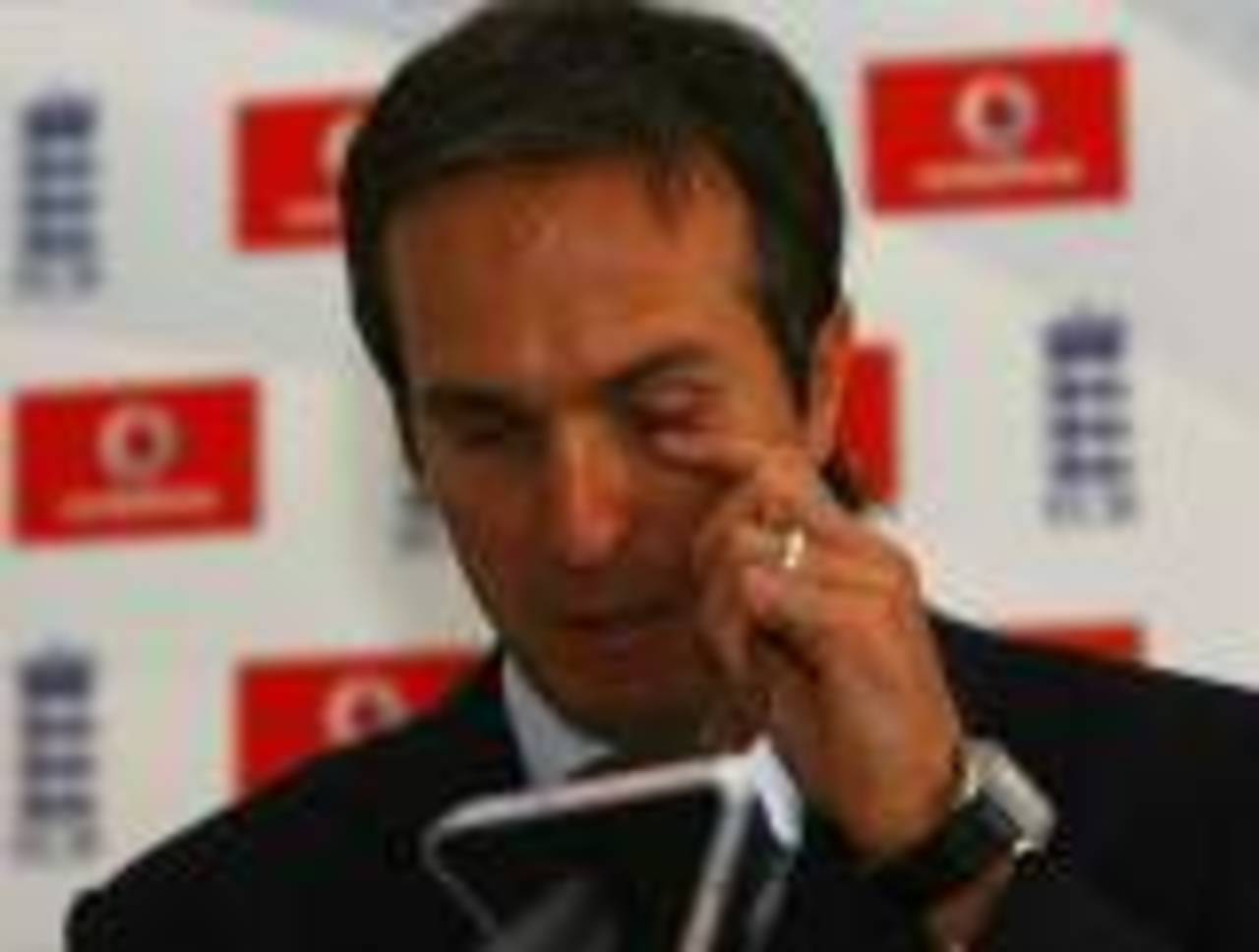The end of the Vaughan era
Michael Vaughan, on Sunday, announced that he was resigning as England's Test captain after five years in charge following their series loss against South Africa
ESPNcricinfo staff
25-Feb-2013

Getty Images
Michael Vaughan, on Sunday, announced that he was resigning as England's Test captain after five years in charge following their series loss against South Africa. With 21 wins to his credit, he finished as England's most successful captain. Mike Atherton, in the Times, explains Vaughan's decision.
The decision, I understand, was his and his alone and on the basis that he believed he could no longer continue, it is hard to argue against. The captaincy of England is just about the best job in the world but it is also an all-consuming one. If you take the job seriously, as Vaughan has unquestionably done, then there comes a time when you simply don't want to do it any more. There comes a time when you don't want to spend every evening at dinner ignoring your companions, or your family, thinking about where your next run is coming from, who should be opening the bowling the following morning or how to tell your mate that he is no longer good enough to be in the team. There comes a time when you want the headlines to be about someone else.
Richard Williams, in the Guardian, says Vaughan's decision to step down is the right one, but comes at the wrong time.
To give the selectors only 24 hours to pick the right man to lead England, not just into the match at The Oval but through the winter and on to next summer's Ashes series, would make an unreasonable demand of any group, never mind this callow bunch. That is why Vaughan's decision, however emotional it may have been, was a selfish one: he should have accepted the need to end his captaincy at the most appropriate time. Yesterday's proclamation, with its note of despair, ends his own torment but helps nobody else.
The Telegraph's Derek Pringle says Vaughan's decline as captain began after his greatest triumph, the 2005 Ashes.
Duncan Fletcher, who combined with Vaughan to plot Australia's downfall in 2005, expresses shock at the resignation. However, Fletcher speaks about the pressures that Vaughan may have faced, saying that "leading England is harder than any other cricketing job in the world, with the possible exception of India." Click here to read his article in the Guardian.
Geoff Boycott, the former England captain, in his column in the Telegraph, says Vaughan's move is the right one considering that he "can't be continually picked on captaincy alone."
Ashok Ganguly is an editorial assistant at Cricinfo